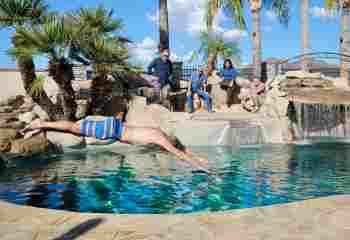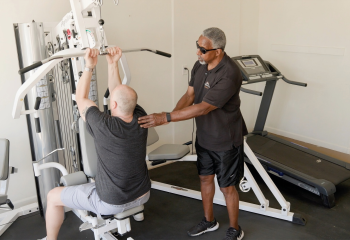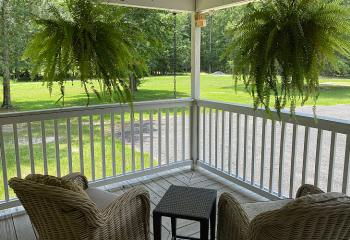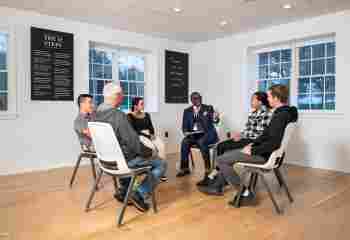More About Rehabs with Golf
Recreational therapies are commonly used to treat substance use and mental health disorders. They benefit you by allowing you to get out of your head and into your body. You may often hear people say that movement is medicine, and for many, this is true. Golfing is a common way that many people enjoy incorporating movement into their lives, and you can even find rehab centers offering golf as a recreational therapy. Whether you are an avid golfer or want to learn how to play, finding a program that provides golf classes may be a good fit for your mental health or addiction recovery journey. While golf is primarily a physical activity, it has various components that can contribute to improved mental well-being and aid in addiction recovery.
Benefits of Golf Classes for Mental Health and Addiction Recovery
Some benefits of golf for those who struggle with mental health and/or substance use disorders are:
- Stress Reduction - Golf is often played in a natural and serene environment, which can help reduce stress and promote relaxation. You can feel calmer and reduce anxiety by spending time outdoors and engaging in physical activity.
- Physical Activity - Golfing involves walking, swinging and other physical movements that help to release endorphins and boost your mood, which can help with depression and anxiety symptoms.
- Cognitive Focus and Concentration - Playing golf requires a certain level of mindfulness and focus as you examine the course and make shots.
- Social Interaction - Golf is rarely played solo, providing an opportunity for social connection and conversation. Social connections and community can improve mental health and aid in recovery.
- New Coping Mechanism - Developing a hobby like golf can distract from negative thoughts or cravings.
- Patience and Resilience - Golf is a challenging sport; however, if you can overcome the learning obstacles, your patience and resilience can transfer to your mental health or addiction recovery journey.
What to Look for in a Golf Instructor
Instructors who teach golf at mental health rehabs or addiction treatment centers need a combination of qualifications and skills. The qualifications can vary depending on the treatment center. In general, golf instructors at a rehab center should be:
- Trained in golf instruction
- Knowledge of addiction and/or mental health
- Empathy, compassion and understanding
- Ability to tailor lessons to the unique needs of each person
- Understanding of the therapeutic benefits of golf
Prerequisites for Joining a Golf Class at Rehab
In most cases, you will need:
- Admission to the rehab center and participation in addiction or mental health treatment to have access to golf classes
- Medical and psychological assessments conclude whether you are physically and/or mentally fit for a physical activity like golf. These assessments ensure that recreational activities like golf occur at the right time in your treatment plan.
- Golf classes can complement other evidence-based therapies but should not be the sole therapy for treating your mental health or substance use disorder.
Duration of Golf Classes at Rehab
The length and format of golf classes at rehab will vary depending on your chosen treatment center. Some rehab centers will offer shorter, more frequent classes while others may offer long, less frequent classes. Beginners may start with shorter classes as they learn the basics of how to golf, while more experienced golfers may have longer classes. The facility’s resources will also influence the length of the classes. For example, a golf course versus a driving range will allow for varying lengths of class time.
Safety Protocols for Golf Classes
Many rehab centers will have safety protocols to ensure the clients’ well-being. You will likely need to undergo a medical assessment to ensure you are in suitable shape to be physically active. You will also likely be taught equipment safety, warm-up stretching, and golf etiquette to maintain a safe and enjoyable environment for everyone involved. You should feel comfortable reporting any safety concerns to the staff while playing.
If you are interested in participating in golf classes, inquire about the specific details regarding class offerings at your chosen treatment center. Keep in mind that while golf classes can instill new coping mechanisms, reduce stress and be a way to increase connection, they are not the sole way to treat your mental health or substance use disorder.






























































































































